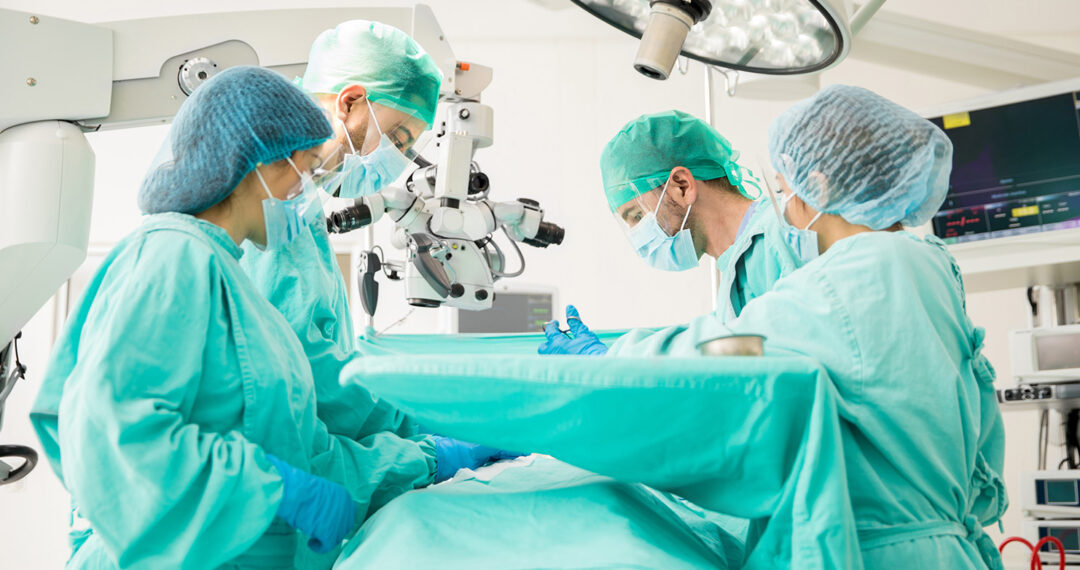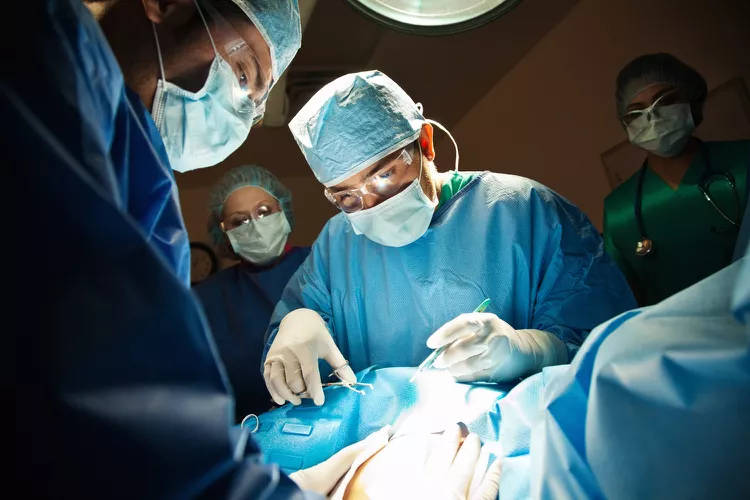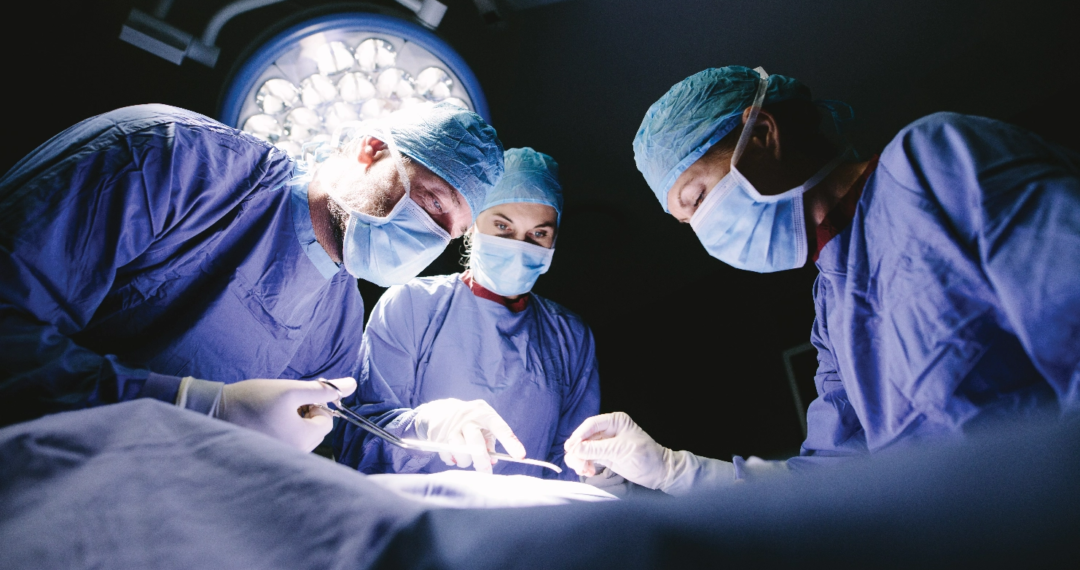Enhancing Surgery: A Hospital Shares Their Experience with the Melzi™ Sharps Finder
Enhancing Surgery: A Hospital Shares Their Experience with the Melzi™ Sharps Finder™

Surgery, a highly intricate and coordinated effort, demands the collaboration of a skilled team that includes nurses, surgeons, anesthesiologists, and other hospital staff. The success of procedures relies on the seamless cooperation and expertise of each team member. OR staff meticulously follow protocols and processes designed to ensure safety and success. However, surgeries are not immune to unforeseen challenges, and the repercussions of even the most minor mishaps can be significant. For example, lost instruments and sharps can potentially disrupt the surgical flow and prolong the operation, which can be dangerous for the patient and taxing on OR staff.
Discover how one healthcare facility leveraged adjunct technology in the OR to overcome this exact scenario.
Lost Sharps & the Limitations of Surgical Counts
When surgeons face a dilemma like a lost sharp, the traditional recourse would be to call an X-ray team to locate the missing item. However, this can be a double-edged sword. Tiny objects like needles and instrument fragments can be challenging to locate and could shift inside the patient as OR staff prepare them for the X-ray. The potential for causing additional harm while locating the lost sharp and the possibility of significant delays may dissuade surgeons from this course of action.
Aside from that, surgical counts, a trusted routine practice in hospitals to maintain accountability for surgical instruments, may provide a false sense of security. While effective in many scenarios, this method may fail to appropriately account for broken instrument pieces and other potential issues, especially with these smaller lost sharps.
Integrating the right adjunct technology like the Melzi™ Sharps Finder™ (MSF) is critical to mitigating the risks associated with these challenges, enhancing communication, organization, and overall efficiency within the surgical setting.
How A Hospital Located a Lost Sharp with Ease
A real-life scenario during an OBGYN surgery in Pennsylvania serves as a poignant illustration of the issues caused by small lost sharps and how the MSF can help. In this case, a tiny needle tip broke off inside the patient, evading the meticulous counts and checks typically employed. The MSF, explicitly designed to locate lost sharps within the human body, proved invaluable in addressing the limitations of the usual methods. The surgeon successfully employed the MSF to swiftly locate and remove the broken needle tip.
The device’s ease of use and effectiveness left an indelible impression on the surgeon, who said:
“We are lucky to have this device on our shelves. When circumstances call for it, the [MSF] comes to the rescue every time.”
This real-life example is a compelling testament to the value of having the right technology at the surgeon’s disposal. The MSF not only mitigated potential complications that could have arisen from the lost needle tip but also did so without causing undue interruption to the flow of the surgery. This experience in Pennsylvania highlights the pivotal role that innovative tools like the MSF play in ensuring the success and safety of surgical procedures, providing surgeons with the means to address unforeseen challenges with confidence and precision.
Maintaining Flow
As illustrated in the example above, adjunct technologies like the MSF play a crucial role in ensuring that the flow of surgery remains uninterrupted. A smooth and continuous flow during surgery is a paramount concern for patient safety. Prolonged surgeries elevate the risk of complications, including infections, excessive blood loss, and potential issues related to anesthesia. By keeping surgeries efficient, healthcare professionals aim to minimize patients’ time under anesthesia, thereby reducing associated risks and promoting overall safety.
Beyond patient safety, efficient surgeries make optimal use of resources, including operating room time, staff, and equipment. This becomes particularly significant in busy healthcare settings where resources are often limited and must be allocated judiciously. Additionally, the systematic execution of a surgical plan contributes to professional satisfaction for the surgical team and enhances overall teamwork and communication.
When asked about his thoughts on the MSF, Dr. Jay Shah, MD, Chief of the Medical Staff for Stanford Health Care, emphasized the collaborative nature of surgery and how valuable technology like the MSF can be in that collaboration. He states, “Surgery does not come down to one person doing something fantastically well […]. Most surgeons in this day and age would say that good surgery results from a million little things done well. So, any tool that we can use to our advantage to help incrementally make the ultimate outcome as good as possible is welcome.”
Implementing Tech that Works for Your OR Team
As emphasized by Dr. Shah, surgery is a collaborative effort, and the continuous development and integration of technology in the operating room not only enhances surgical precision but also contributes to the efficiency, safety, and overall success of this collaboration. That makes it essential for OR staff to constantly assess and reassess their current protocols and seek new and improved equipment that integrates with their workflows. It’s not always about introducing the most advanced equipment but rather ensuring that innovations align with the specific needs of your surgical team.
The Melzi Sharps Finder, as demonstrated in the real-life scenario above, has proven to be a game-changer in swiftly locating and addressing the unforeseen challenge of lost sharps without causing undue interruption to the surgical flow. Its ease of use and effectiveness are vital assets in the OR, where this tool can potentially help mitigate complications and avoid unnecessary interruptions.
Want to learn more about the Melzi Sharps Finder? Explore our site or get in touch today.
Follow Melzi Surgical
"*" indicates required fields
Recent Posts





